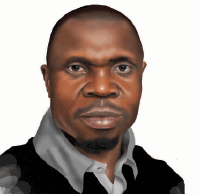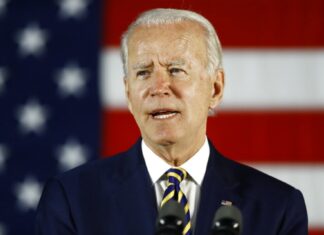Today is June 12. Remember? Yes, the day of that election; the election that was annulled with extreme military insensitivity. It was the day in 1993 that Nigeria took one political misstep that hauled the nation many years backward.
Within a flash of seconds, there was hope for a country that for many years was held captive by deadly military politics. And just when we thought it was all over, a statement signed on a plain paper, announced the annulment of the election; an election regarded as the freest in Nigeria at that time.
It was an ugly decision that set the hand of the clock backward for the country. Tempers rose. Blood flowed. Smell of death filled the air. Shallow graves dotted the landscape called Nigeria as demonstrators were slaughtered at will.
For those who are 23 years and below: June 12, 1993 was the day Ibrahim Babangida supervised the presidential election that produced Moshood Kashimawo Olawale Abiola as the clear, though unannounced, winner.
Celebration was in top gear, particularly in the southern part of the country for obvious reasons. It was the first time the South was going to produce a president – whether military or civilian at the centre.
Forget about Aguiyi Ironsi who was killed just after stepping in; and Olusegun Obasanjo who was an accidental head of state after Murtala Mohammed was killed.
It was in the midst of the subdued celebration that further release of the election results was embargoed by the military leadership when it became clear that Abiola was leading. Even his opponent in the National Republican Convention had already prepared a congratulatory letter for Abiola when Babangida and his co-travellers deflated the balloon midway.
Trouble started. Babangida was forced to step aside. An Interim Government led by a technocrat, Ernest Shonekan, was inaugurated. A few days later, Abacha and David Mark pushed out Shonekan in a bloodless coup that inaugurated Abacha as the new head of state.
When Abiola protested the take over and the decision of Abacha to ignore the mandate given him by the Nigerian people, he was immediately arrested and locked up on charges of treasonable felony; although he was never tried in a court of competent jurisdiction as demanded by law.
A few months later, Mark challenged Abacha, accusing him of breaching their terms of agreement; which was to take over, conduct a fresh election and get out of the way.
That was a risky enterprise; and Mark new it. That same day, in the evening, he flew to Ghana; and into exile that lasted many years.
The nation got politically sicker when Abacha died many years after. It was natural for the pro-June 12 politicians and activists to demand that Abiola be brought back to assume office. Then Abiola died under questionable circumstances.
And the story ended there. But June 12 has refused to die.
Talking about sickness, our straight-faced President Muhammadu Buhari has travelled to the United Kingdom to have his ears examined by better qualified Ear, Nose and Throat (ENT) doctors.
That leaves the Nigerian ENT doctors jobless, according to one reporter.
Does that mean he is sick? Buhari is not sick; says Femi Adesina, a very senior journalist and presidential spokesman. His eyes indicated that he was already offended at the suggestion that his boss was sick. Sorry sir. The president is not sick.
Adesina’s definition of sickness is a bit queer. To be sick, you must suffer from something that puts you down, and deprives you of the appetite for anything and the ability to talk or answer a reporter’s questions. He came short of saying that if you are sick, you can’t walk or work; you won’t even be able to eat or be available to be seen by anybody.
For some days since the report hit the online media that Buhari was sick, and based on Adesina’s denial, I have been looking through a couple of dictionaries for an acceptable definition of sickness.
Some of the dictionaries are like what we used to have in our primary school days. It was called Michael West Dictionary.
For instance, if you check for the meaning of sickness in Michael West, what you are likely to see is: sickness means the state of being sick. For the meaning of ‘sick’ you’ll be told: a state that can lead to sickness.
To be sick, according to some of the dictionaries at my disposal, means a state in which you are unable to function normally and without pain. It also means unhealthy condition of the body.
What this implies is that Buhari is sick because he has pains in his ears, a condition that has made the ears unable to function normally. That’s why he needs medical treatment.
Tell me, what is really wrong in stating clearly that the president is sick; and the sickness is that he has some pains in his ears caused by infection? What is wrong with that? When did it become an offence to be sick? Is there anything criminal about sickness; even when it is the president that is affected?
At a time when the president has banned foreign medical treatment for public servant, how come he couldn’t be treated at the State House clinic? Was it really necessary to fly the president out for treatment of a mere ear infection?
Is this a confirmation that even at the seat of government, there is no medical facility and personnel that could handle this problem?

- Advertisement -
- Advertisement -
Must Read
Poll shows Biden’s lead over Trump is shrinking ahead of US...
The latest Quinnipiac Poll marks a significant closing of the gap for Trump, who trailed Biden 48%-45% in March










